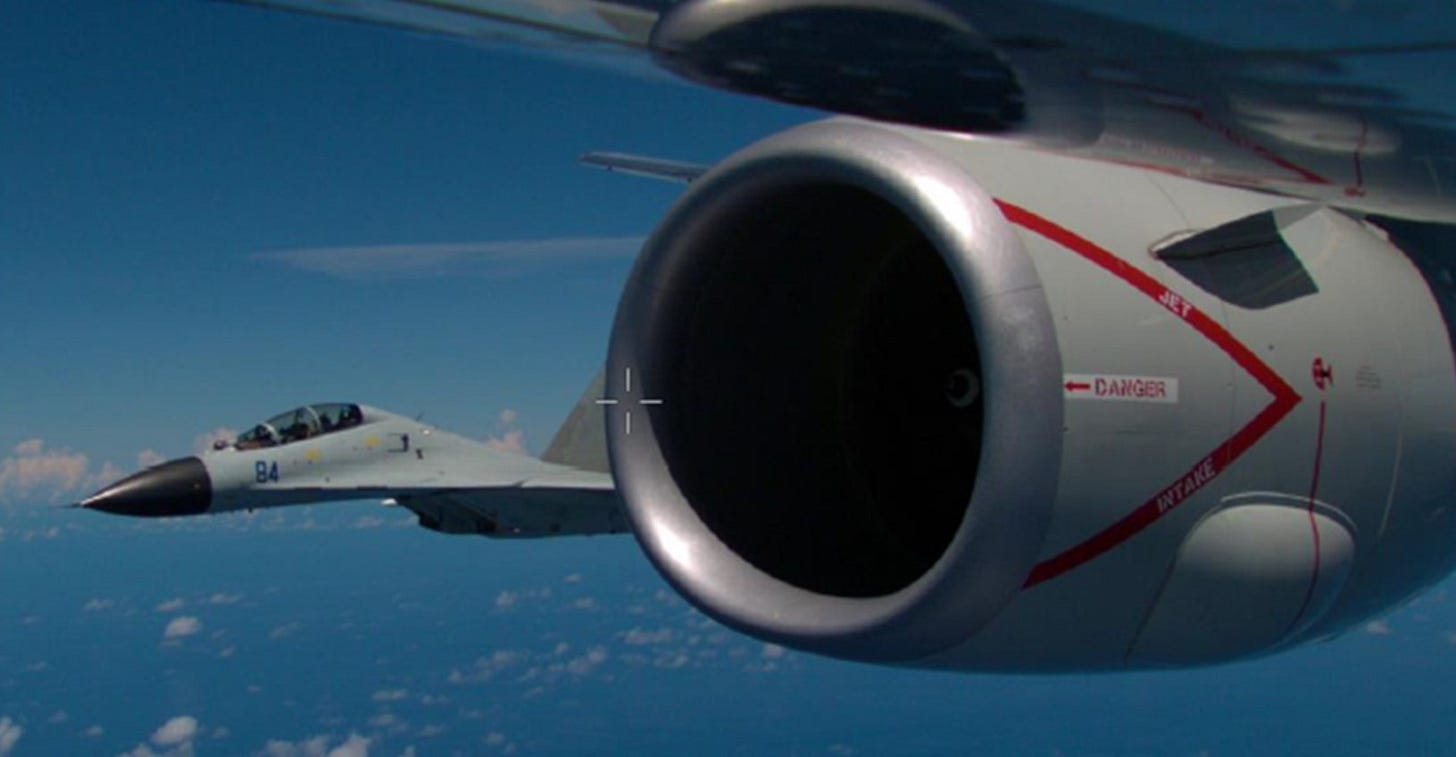Freedom of navigation isn't free
On human nature's less-desirable sides, the real prices of things, and why the US is calling out bad behavior by Chinese military pilots
The Defense Department has released a set of photos and videos documenting the behavior of military aircraft belonging to the People's Liberation Army of China. The Pentagon calls the fifteen recorded incidents "coercive and risky" and says "the goal of the PLA's behavior is to pressure the United States and other nations to reduce or cease lawful operations".
■ There isn't a reasonable person alive who wants an escalation of hostilities between the United States and China. By its nature, armed conflict is destructive and wasteful. But the United States is in the unique (and perhaps unenviable) position of having the resources necessary and the motivation required to assert the rights associated with international law.
■ Chinese military hardware has been used to intimidate Filipino vessels and test Japanese airspace in recent months, in addition to its persistent harassment of Taiwan.
■ It has all been quite enough to motivate a growing roster of countries to join in precautionary military exercises with the United States. But there is no other power quite as capable as the United States when it comes to projecting the power necessary to actively assert the freedom of navigation written into international law.
■ There are those who reflexively oppose military spending on philosophical grounds. But the question must always be asked, "Compared to what?" Put differently, economists would say that the real price of a thing is what you give up in order to get it. Peace alone is not free; human nature has certain tendencies, like tribalism, greed, and instincts to display dominance, that when taken together are a potent recipe for armed conflict -- even when that isn't in any party's actual self-interest.
■ Predictable, enforceable rules help to put boundaries around that kind of conflict. So do parties willing to lay open claim to the rights guaranteed by those rules. That is what the United States has been doing and appears willing to continue to do, in the name of a set of international rules that benefit not just us, but also our allies. If those exercises seem expensive, the question is: Compared to what?



